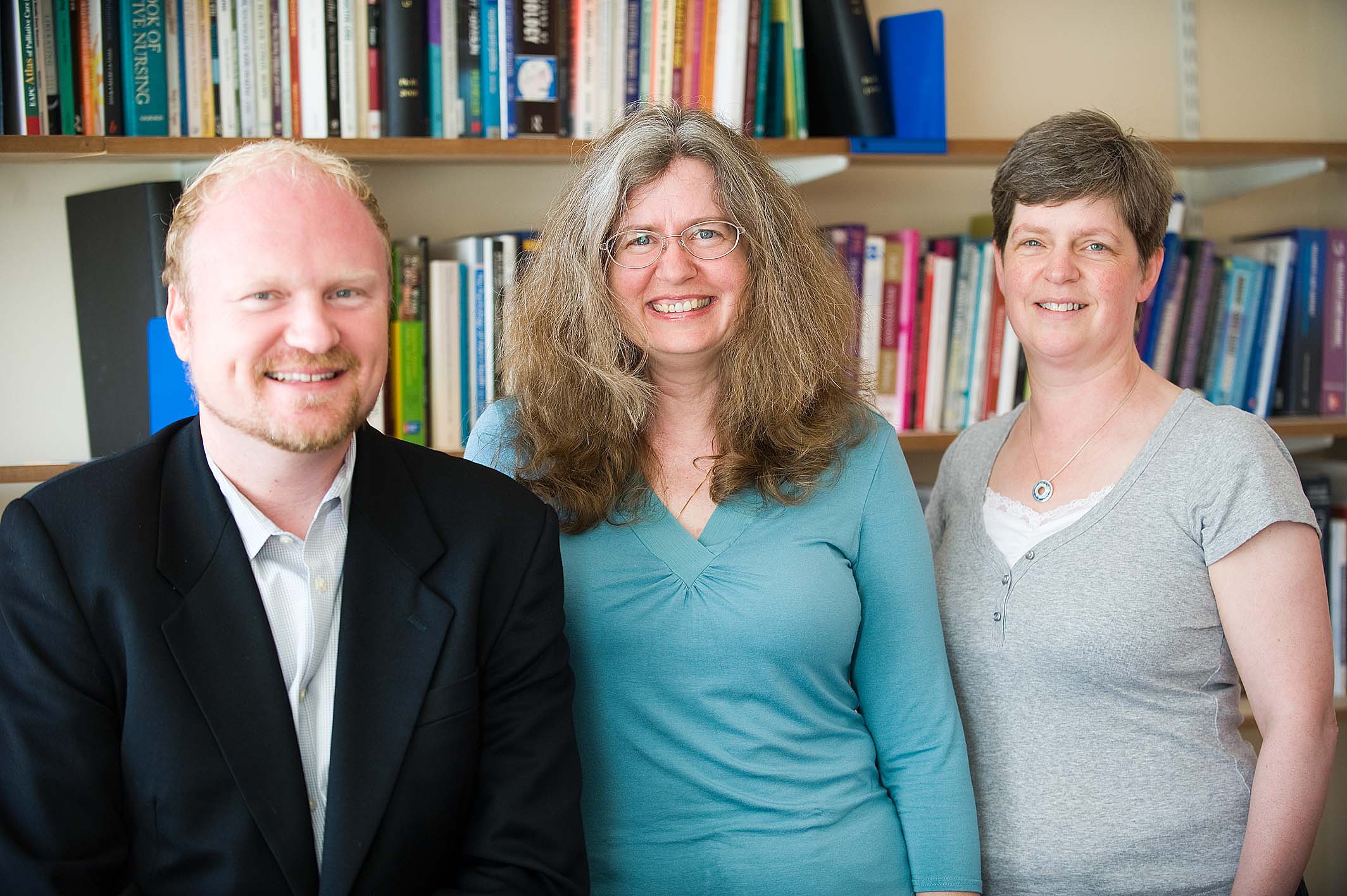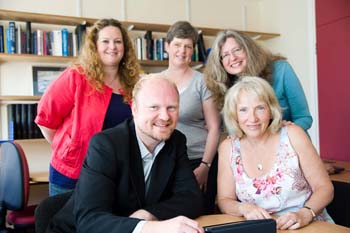Lancaster launches world's first Palliative Care PhD

The first students on Lancaster University’s new Doctorate in Palliative Care started their course in June with a visit to the campus. The doctorate is the first of its kind in the world.
The doctorate has attracted 16 people from a range of backgrounds and countries, who are working in the field of palliative, hospice and end of life care.
Health professionals taking the doctorate include Alison MacRobbie, a pharmacist in rural Scotland who is looking to improve pharmacy services in a remote area, Shirley Otis Green an oncology social worker and research specialist at the City of Hope Cancer Center in Duarte, California, USA who currently holds research grants worth $1.6M and Stephen A. Leedy, Executive Vice President of Medical Services and Chief Medical Officer of Tidewell Hospice and Palliative Care, a large not-for-profit healthcare organization caring for over 1,200 patients daily in Southwest Florida.
The doctorate will be delivered by distance learning and will equip the professionally qualified students with advanced skills.

Course director Dr Sarah Brearley said: “ The course is open to clinicians, managers, researchers and policy makers, and not restricted to any one professional group or discipline. Our current students work in a variety of organisations, such as hospices, health and social care.”
New student Alison MacRobbie’s role as Palliative and Community Care Pharmacist for NHS Highland has challenges in serving a large and remote area covering 41% of the landmass of Scotland but only 6% of the population. Populated islands, limited internal transport, and communications infrastructure, and a tourist influx where some areas population may double or treble adds to her large and complex remit where the proportion of elderly people is above the Scottish average.
Alison says : “The demands of the job are constantly increasing and new ways of working, including use of new technology such as telemedicine mean that change is inevitable and learning essential to provide the best services possible.
“Ensuring pharmaceutical care services are delivered equitably and effectively to patients within this remote and rural area remains the biggest challenge, with a small and disparately located team and limited access to community pharmaceutical services for large geographical areas. My work includes everything from ensuring the continuity of access to medicines, identifying in advance potential difficulties with medicines to avoid actual harm, introducing different medical equipment such as new syringe pumps and leading the ‘anticipatory prescribing – just in case’ approach to supporting patients at home towards the end of life.
“I hope that the PhD will enable me to research effective methods of delivering pharmaceutical care to palliative care patients in remote and rural areas.”
Stephen Leedy,who is aFellow of the American Academy of Hospice and Palliative Medicine, welcomes the opportunity to increase research around end of life care, which is an emerging speciality at a time where the ‘baby boomer’ generation is reaching 65+ and the US is facing health care reform.
He said: “ I would say a particular challenge is to the get end of life care recognised as a credible and distinct specialism when 10-15 years ago it didn’t exist. Now we have different rules and certifications yet are relying on inadequate and anecdotal research, because only then can we start to dispel some of the myths that surround end of life care and dying.
“ It’s not widely known that chemotherapy and radiation therapies are available in hospices because there is a belief that you only go to a hospice to die. Misinformation about euthanasia and physician-aided suicide can also worry people unnecessarily and can stop patients and families making the decisions that are best for them.”
Shirley Otis Green, the only clinical social worker on the PhD also recognises the need for more research into end of life care.
She said: “ The international element of this PhD is really important as we absorb and build on best practice around the world.
“My work focuses upon enhancing quality-of-life, palliative care, bereavement support services, and developing integrated symptom management models, with a special emphasis upon underserved populations.
“Planning care with individuals and families and helping families to make choices for their loved ones which they don’t later regret can reduce the stress they feel and make the difference between a terrible experience and one, which although unwanted, can be positive.”
The PhD students will benefit from Lancaster’s reputation for leading the field in end-of-life care research through its International Observatory on End of Life Care. Four years ago Professor Sheila Payne became the UK’s first professor of Hospice Studies, a post supported by the national charity Help the Hospices. This was followed by the appointment of Professor Mike Bennett, who took up the new post of consultant and professor of palliative medicine- a joint appointment between Lancaster University and St John’s Hospice.
Dame Barbara Monroe, Chief Executive of the flagship St Christopher’s Hospice in London and internationally recognised leader in promoting services for families and children facing bereavement, is an honorary professor at the Observatory, and will be teaching on the new Doctorate.
Lancaster will launch two other health related Doctoral courses in 2011, a Doctorate in Public Health, directed by Dr Paula Holland and a Doctorate in Organisational health and Wellbeing , directed by Professor Sue Cartwright.